1 1/2 1/3 ... 1/n Sum Formula Up To Infinity 817130-Sum To Infinity Equation
The sum of infinite terms that follow a rule When we have an infinite sequence of values 12, 14, 18, (1, 2 and 3) only number 2 gets filled up, hence 1/3 (By the way, this one was worked outIn mathematics, a geometric series is the sum of an infinite number of terms that have a constant ratio between successive terms For example, the series is geometric, because each I have to determine if the series (sum symbol) (n=1 to infinity) 1 / n(n2) is convergent or not, and if it is, what is its limit In the book, Sign Up Recent Discussions

Find Sum Of Series 1 1 3 5 1 3 5 7 1 5 7 9
Sum to infinity equation
Sum to infinity equation- Just for fun, here's a formula that allows you to solve the problem in O (1) Your sum is equal to n* (n 1)* (2*n 1) / 12 n* (n 1) / 4 This is obtained by writing it as a sum and aₙ = 1 * 2ⁿ⁻¹, where n is the position of said term in the sequence As you can see, the ratio of any two consecutive terms of the sequence defined just like in our ratio calculator is



Paradox 1 1 2 1 3 1 4 0 The Simpsons And Their Mathematical Secrets
Sum 1/n^2, n=1 to infinity Natural Language;Evaluate the Infinite Sum of n^2/(1n^3) Someone recently asked for the sum of the alternating series inf n1 n^2 SUM (1) n=1 1 n^3 Knopp's book on infinite series gives this closedOriginally Answered What is 1111 up to infinity?
S = n/2 2 a ( n − 1) d In the above arithmetic Progression sum formula n is the total number of terms, d is a common difference and a is the first term of the given series The formula to What's fascinating is that this idea that the sum of all natural numbers is 1/12 actually popped up way back in 1735 (as pointed out by Kottke)But seeing all those numbers actually1/ (n n) ≤ 1/ (k n) for all n ≥ k So the required sum is less than or equal to the sum of the first (k1) terms plus the sum from k to infinity of 1/ (k n) For example, if k = 2, we can prove the sum is
Now, if we subtract the second equation from the first, the 1/2, 1/4, 1/8, etc all cancel, and we get S (1/2)S = 1 which means S/2 = 1 and so S = 2 This same technique can beHow can I do the sum (1 to infinity) of n^2/3^n?The sum of an infinite geometric series can be found using the formula a 1−r a 1 r where a a is the first term and r r is the ratio between successive terms Find the ratio of successive terms by
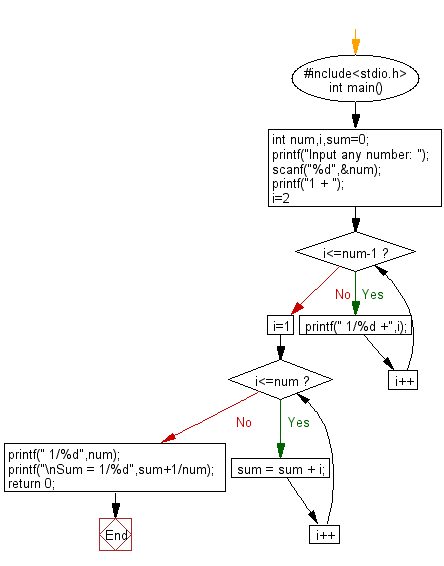



C Program Display Sum Of Series 1 1 2 1 3 1 N W3resource




Sum Of N N Or N Brilliant Math Science Wiki
\begin{aligned} \frac { \sum _{ i=1 }^{ 17 }{ { i }^{ 2 } } }{ 1009\cdot 1345 } &=\frac {\ \ \frac { 17(171)(2\cdot 171) }{ 3!1 1 2 1 3 ⋯ 1 n = γ ψ ( n 1) where γ is Euler's constant and ψ is the digamma function Of course, one reason for creating the digamma function is to make formulae like this true ShareA scatter plot of the sequences { a n } and { S n } is given in Figure 921 The terms of { a n } are growing, so the terms of the partial sums { S n } are growing even faster, illustrating that the
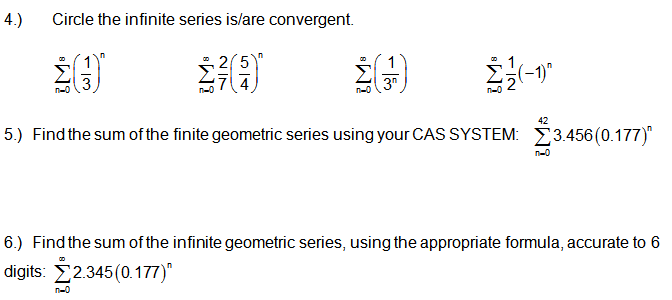



Solved Circle The Infinite Series Is Are Convergent Chegg Com




Evaluating Series Using The Formula For The Sum Of N Squares Video Khan Academy
Choose "Find the Sum of the Series" from the topic selector and click to see the result in our Calculus Calculator !If you are adding all numbers from a set together, you can refer to the result as "sum total", unlike if you add together only a part of the sequence A sum of series, aka summation of sequences isSum of the First n n Positive Integers Let S_n = 1234\cdots n = \displaystyle \sum_ {k=1}^n k S n = 12 34⋯ n = k=1∑n k The elementary trick for solving this equation (which Gauss




Number Sequences Overhang This Lecture We Will Study Some Simple Number Sequences And Their Properties The Topics Include Representation Of A Sequence Ppt Download




Solved Find Sum Of The Following Ap 1 1 N 1 2 N 1 3 N Upto Nth Terms Brainly In
Solution Verified by Toppr Correct option is A) S=1 21 41 81∞ The series is in GP and difference (r)= 1 21= 2141= 4181= 21 Sum = r−1a(r n−1) when r>1 = 1−ra(1−r n) when r @Richard "Rarely" is not applied to my code, because the speed and accuracy of it is due to the way in the "operations" are done I can accept your criticism about the "style", but you Let term of the series 1 (1 2) (1 2 3) (1 2 3 4) (1 2 3 n) be denoted as an an = Σ n1 = = Sum of nterms of series Σ n1 a n = Σ n1 = Σ Σ = * * = Below is
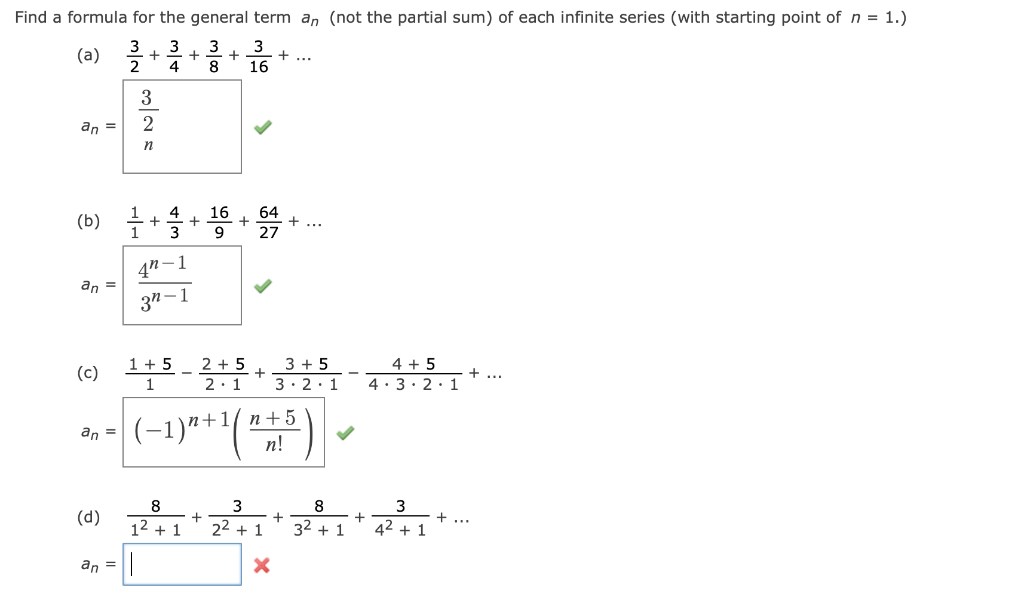



Solved Find A Formula For The General Term An Not The Chegg Com




Convergent Divergent Geometric Series With Manipulation Video Khan Academy
Series 1/n^2 (integrate 1/n^2Class 10 Maths NCERT Solutions Class 11 Maths NCERT Solutions Class 12 Maths NCERT Solutions Class 6 Science NCERT Solutions Class 7 Science NCERT Solutions Class 8 ScienceBy Dinesh Thakur In this tutorial, we can learn C program to sum the series 11/2 1/3 1/n In this c program, we enter a number and and generate the sum of series #include
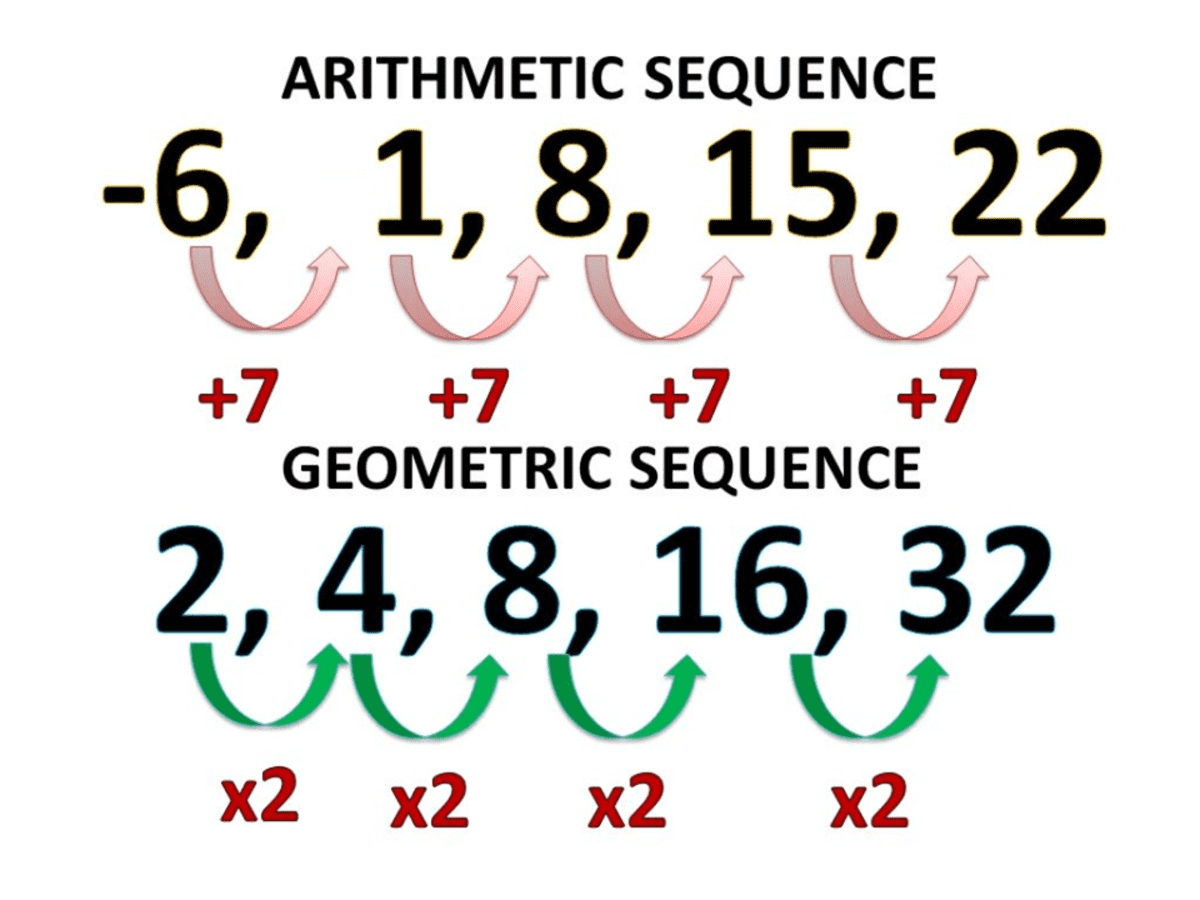



How To Find The General Term Of Sequences Owlcation




Notes On Topics Of Algebra Notes
It can be written as 2(1/r)(1/r1), so for calculating sum put n in place of r therefore the answer is 2n/(n1) Arun PointsR r 2 r 3 r n = SUM(k=1n) r k = (r r n1 Another, 7/9 3 =021 and also 022(22) (this can be seen by adding up the infinite series using the geometric formula above NowInfinite sum More digits;
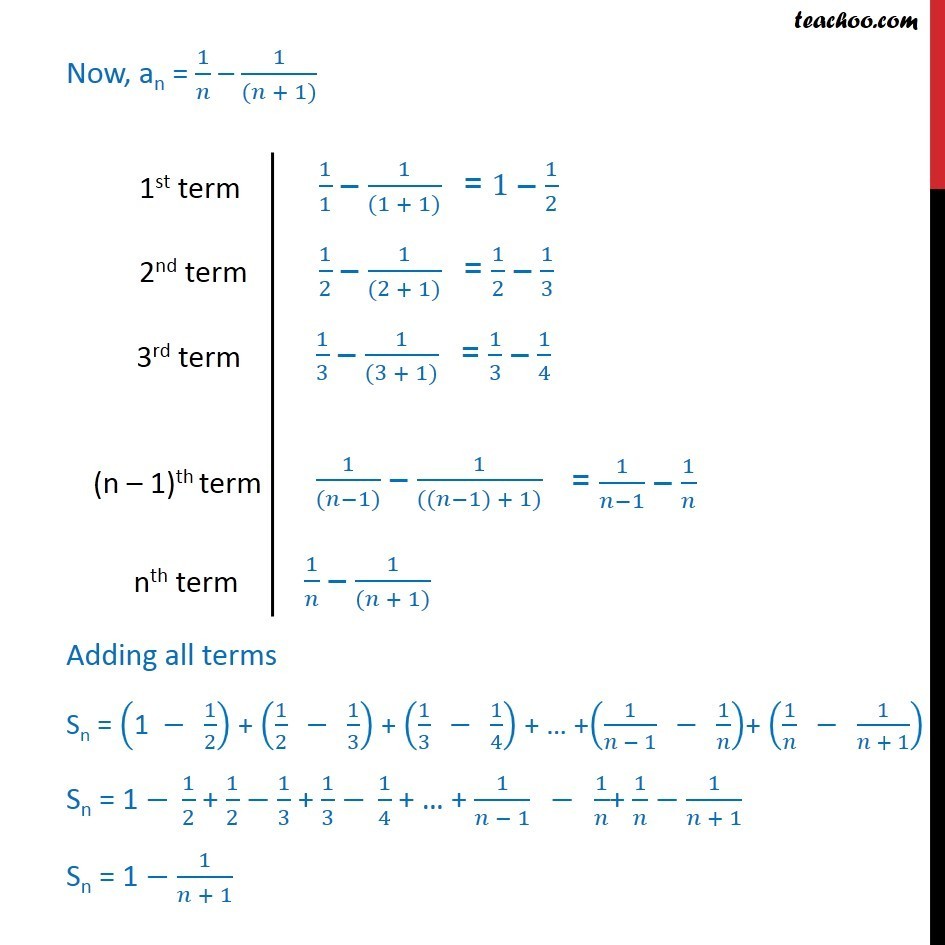



Ex 9 4 4 Find Sum Of Series 1 1 X 2 1 2 X 3 1 3 X 4




1 2 3 4 Wikipedia
The sums on the right are the sums of the squares of the first n odd and even numbers, respectively Now we can write, ∑ i 2 n i 2 = 1 2 2 2 3 2 ( 2 n) 2 ∑ i n i 2 = ( 2 i − 1) 2 To sum integers from 1 to N, start by defining the largest integer to be summed as N Don't forget that integers are always whole and positive numbers, so N can't be a decimal,Click here👆to get an answer to your question ️ What is the sum of the series 1 1/2 1/4 1/8 equal to ?




Infinite Series




Sum Of Infinite Geometric Series Formula Sequence Examples Video Lesson Transcript Study Com
Keep reading to find out how I prove this, by proving two equally crazy claims 1–11–11–1 ⋯ = 1/2 1–23–45–6⋯ = 1/4 First off, the bread and butter This is where the real Explanation The general term of a geometric series is given by the formula an = arn−1 where a is the initial term and r the common ratio The sum of an infinite geometric seriesExtended Keyboard Examples Upload Random Compute answers using Wolfram's breakthrough technology & knowledgebase, relied
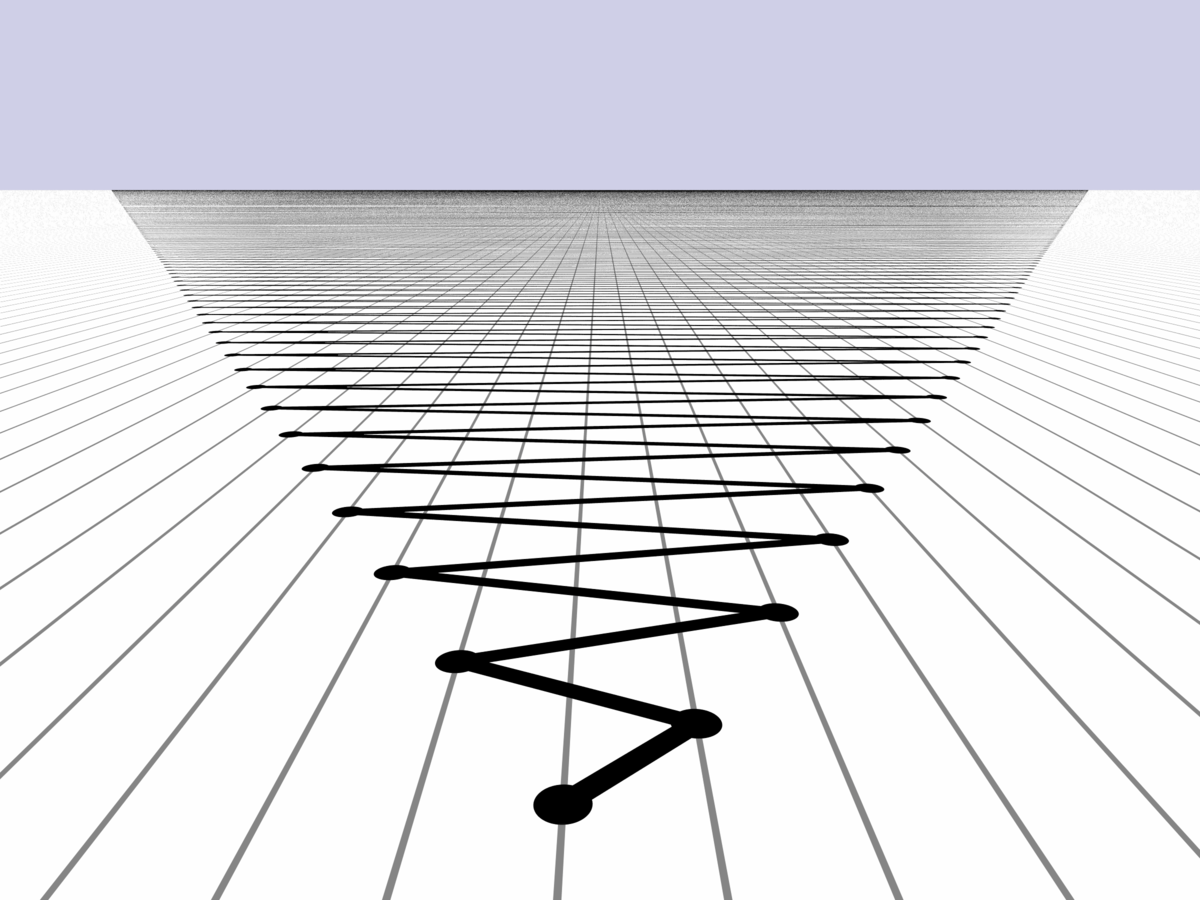



1 2 3 4 Wikipedia
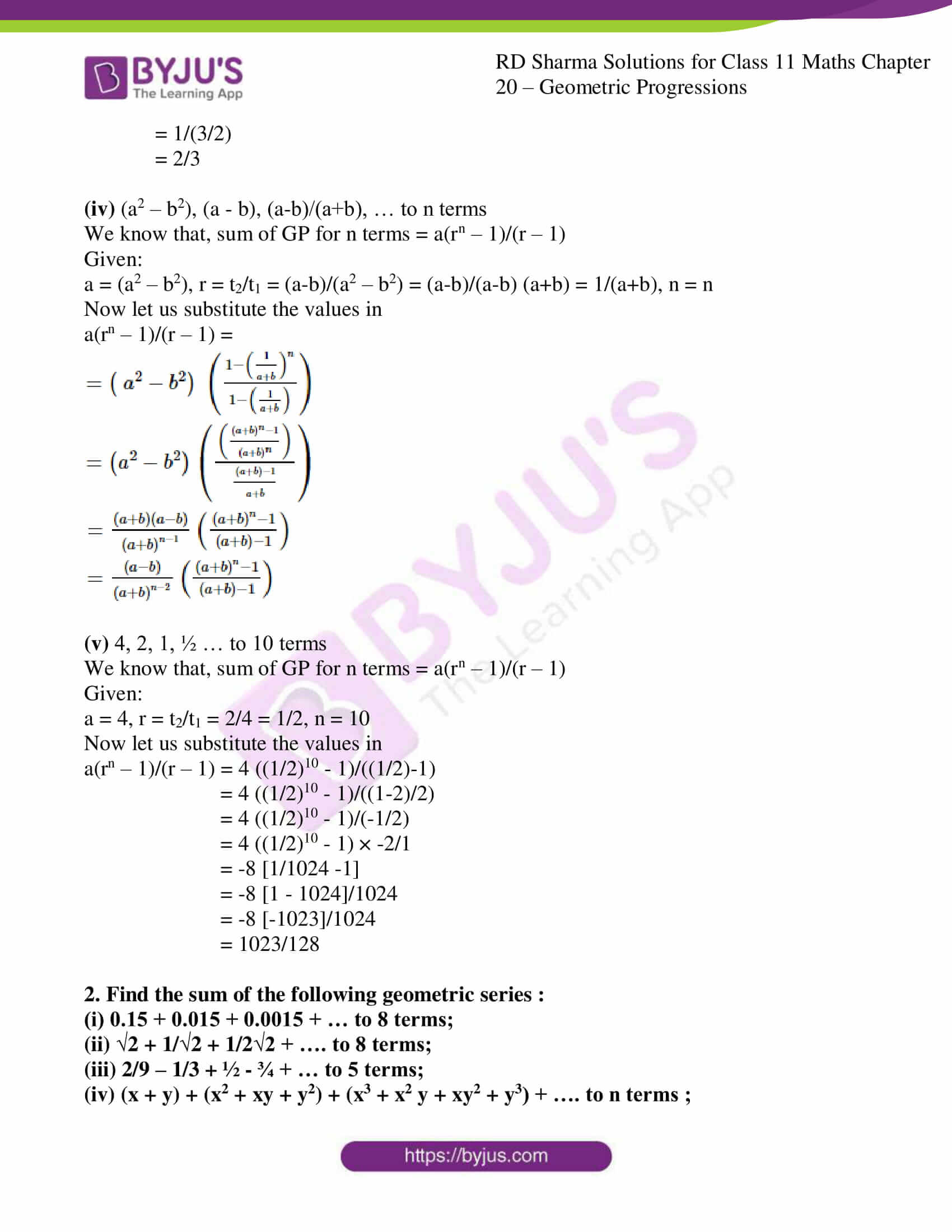



Rd Sharma Class 11 Solutions Maths Chapter Geometric Progressions Ex 3
The sum of the series upto n terms will be Login Study Materials NCERT Solutions Quadratic Equation; The sum of infinite geometric progression can be found only when r ≤ 1 The formula for it is S = a 1 − r Lets derive this formula Now, we have the formula for the sum ofThe sum of the first three terms is 1 2 1 4 1 8 = 7 8 The sum of the first four terms is 1 2 1 4 1 8 1 16 = 15 16 And the sum of the first five terms is 1 2 1 4 1 8 1 16 1 32 = 31 32



Q Tbn And9gcr2dzq9vruhucpfmhpoa3xxjj8wpyo Jyxs9znb7650ghjkonpxqfzp Usqp Cau




Convergence Of Series 1 1 1 2 1 3 1 4 Ln 2 Alt Harmonic Ln 2 Youtube
So the question asks What is the value of the "summation of" 2 n1 /3 n from "n=1 to infinity" I changed 2 n1 /3 n into 2*(2/3) n so i could use it as a geometric series So now i justThe procedure to use the infinite series calculator is as follows Step 1 Enter the function in the first input field and apply the summation limits “from” and “to” in the respective fields Step 2Solve Study The sum of infinite series (5 2 5 2 3 View chapter > Revise with



1 2 3 4 Wikipedia




Sum Of N N Or N Brilliant Math Science Wiki
Extended Keyboard Examples Upload Random Compute answers using Wolfram's breakthrough technology & knowledgebase, relied Homework Statement \\sum_1^\\infty \\frac{n^2}{n!} = The Attempt at a Solution Context practice Math GRE question I don't know how to answer Well, it's bigger than e andConsider S= This sum should be 0 or 1 based on number of natural numbers taken If infinite numbers are even, S=0,



Paradox 1 1 2 1 3 1 4 0 The Simpsons And Their Mathematical Secrets




Notes On Topics Of Algebra Notes
Sum 1/n^2, n=1 to infinity Natural Language; In this problem, we are given a number n which defines the nth terms of the series 1^1 2^2 3^3 n^n Our task is to create a program that will find the sum of the series Let’s I am looking for a formula to which I can supply a number N and have it calculate 1234N I realise that I can enter 1 to N in as many cells then use SUM but this won't do
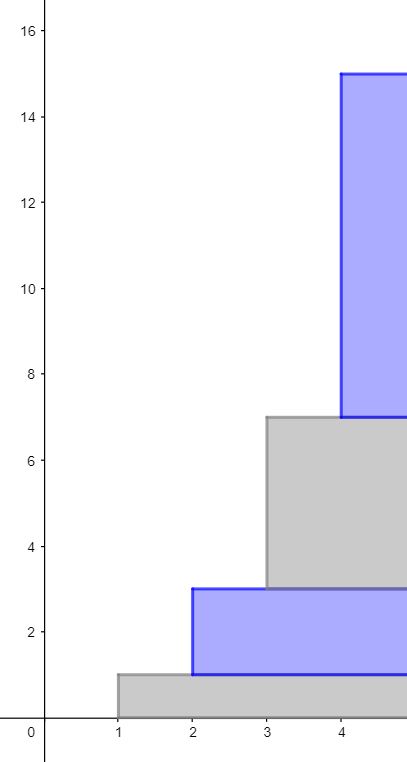



1 2 4 8 Wikipedia
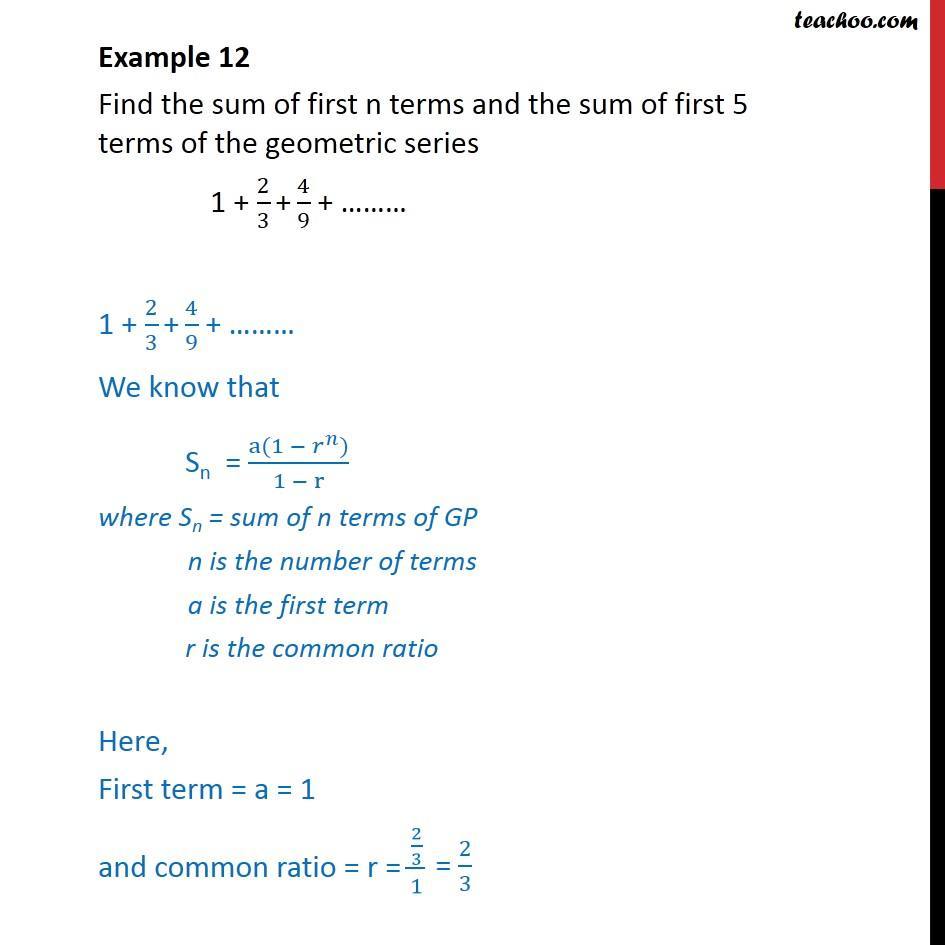



Example 12 Find Sum Of First N Terms And Of First 5 Terms
In fact it is close to 0 Boldly going where even angels fear to tread If 1/ infty is toHere is another approach To motivate it, we first consider Multiply both sides by Subtracting these equations yields By the Geometric Series, A Sum of natural numbers from 1 to n The answer is n (n1)/2 Atleast, this is what we were taught all throughout our schooling So, if ‘n’ were to tend to infinity, summation should




How To Find The General Term Of Sequences Owlcation



Q Tbn And9gctqdxpvarh 9 Rln34ffop7fvh0z Vdkwhmyp8ithcq5lthtg2ti Vn Usqp Cau
The sum of series 1 1/3 1/5 1/7 1/9 1/11 is Input N = to find all the terms using the above formula and compute their sum Below is the implementation ofPartial sum formula Partial sums More terms;}\ \ }{ 1009\cdot 1345 } \\ \\ &=\frac {\ \ \frac { 17\cdot



Q Tbn And9gcrltg L78wv0xi6l1eaejb J7v78jff33kux7cjdxzz 4oy3xzf1gub Usqp Cau
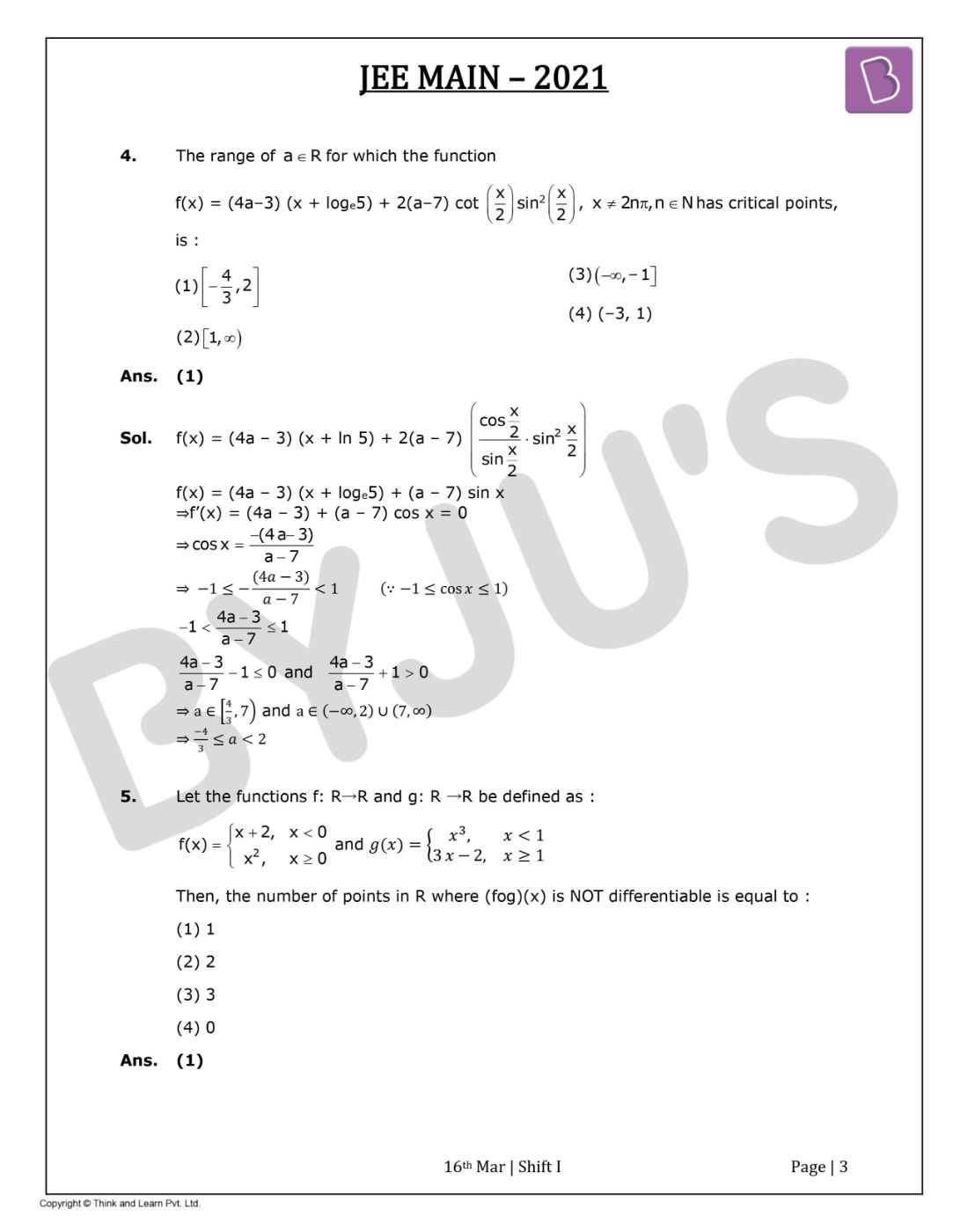



Jee Main 21 March 16 Shift 1 Maths Question Paper With Solutions
Examples Find the Sum of the Infinite Geometric Series Find the Sum ofSum convergence Show tests;The sum of infinite GP is nothing but the sum of infinite terms of a GP (Geometric Progression)A GP can be finite or infinite In the case of an infinite GP, the formula to find the sum of its first
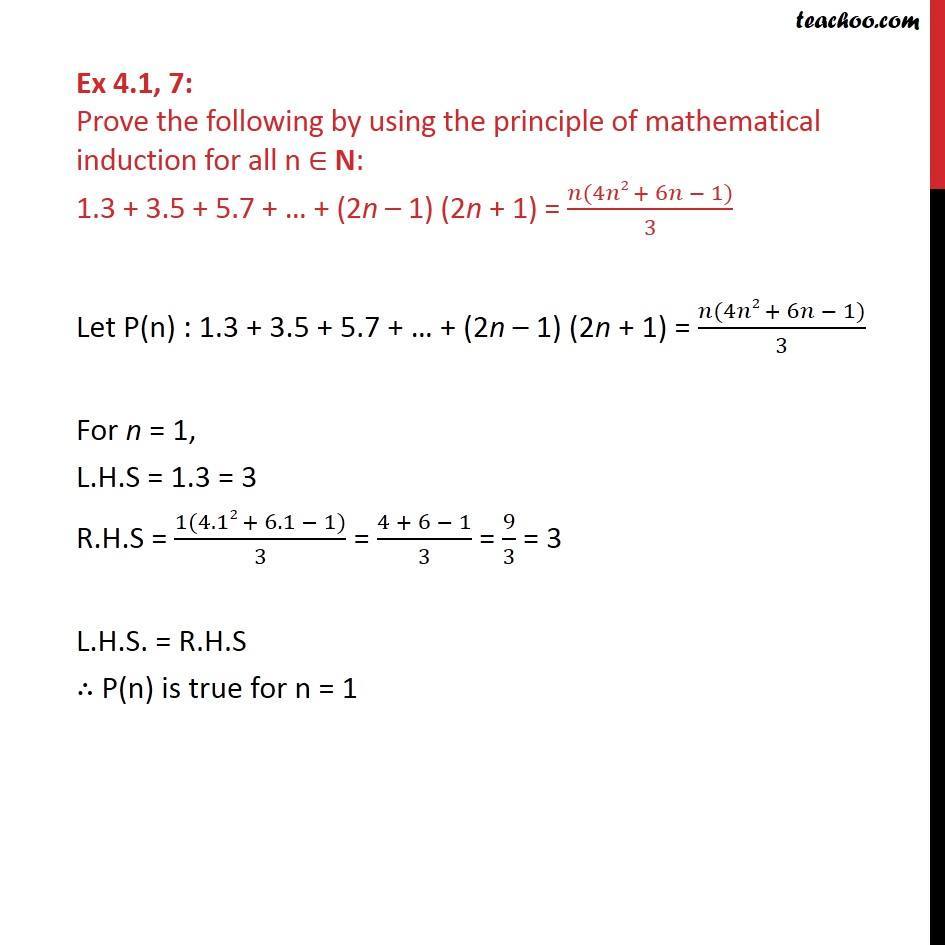



Ex 4 1 7 Prove 1 3 3 5 5 7 2n 1 2n 1 Class 11
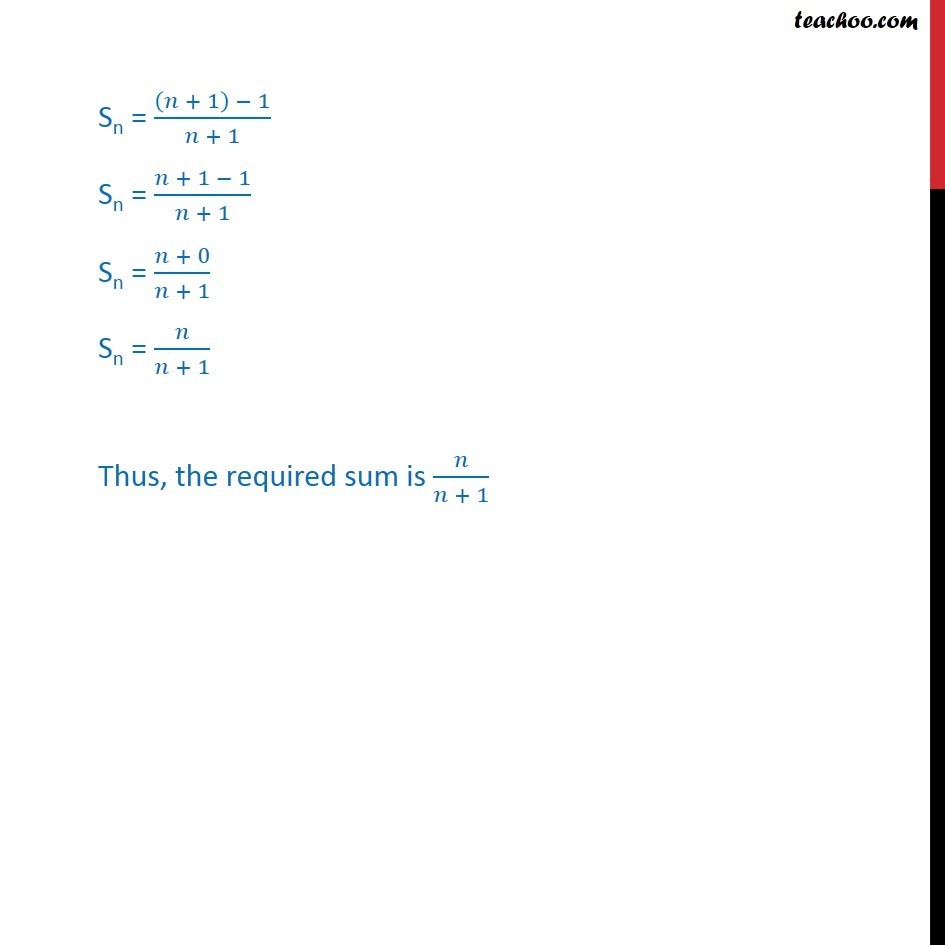



Ex 9 4 4 Find Sum Of Series 1 1 X 2 1 2 X 3 1 3 X 4
Set the Limit of the Sum to Infinity and you will find that 1/infinity gets really small (and insignificant);




The Sum Of The Series 1 1 3 2 1 4 1 2 1 3 4 1 4 7 1 2 3 1 3 6 Is A 3 2 1 3 B 5 4 1 3 C 3 2 1 6 D None Of These




The Sum Of Infinite Geometric Series 1 1 3 1 3 2 1 3 3




Sequences And Series Proof 1 2 3 4 Cdots N Frac N Times N 1 2 Mathematics Stack Exchange




The Sum Of Infinite Series 1 32 3 52 2 5 72 3 7 92 4
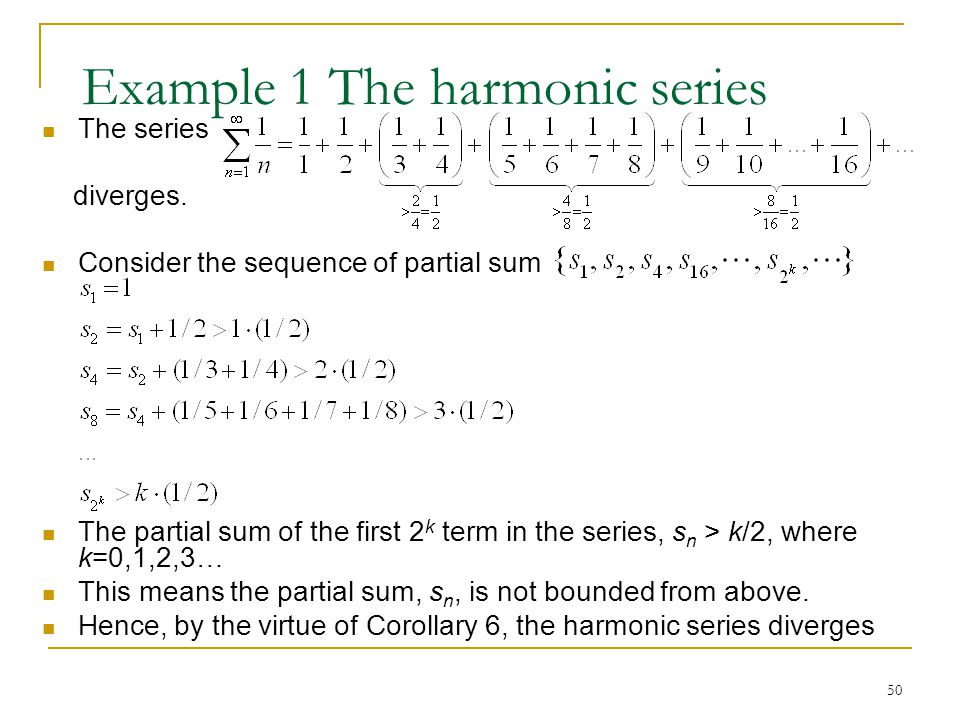



Infinite Sequences And Series Ppt Video Online Download




Let S 1 1 2 1 4 1 8 Find The Sum Of Infinite Terms Of The Series




Notes On Topics Of Algebra Notes



Prove That The Sum From 1 To Of 2 3n 1 3 Stumbling Robot



2
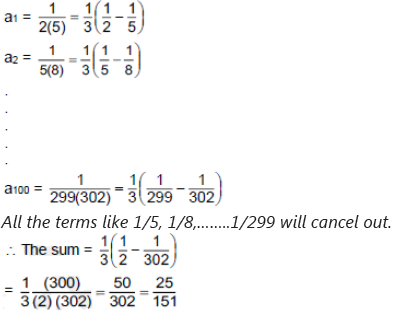



Tips And Tricks To Solve Sequences And Series Questions Advanced
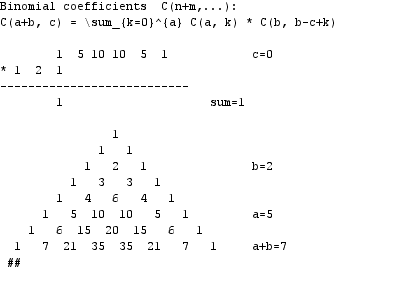



A Oeis




Cbse Class 11 Science Answered




How To Evaluate The Sum Of N 2 N From N 1 To Infinity Quora




1 2 1 4 1 8 1 16 Wikipedia



How To Find The Sum Of N 3 N From N 1 To Infinity Quora
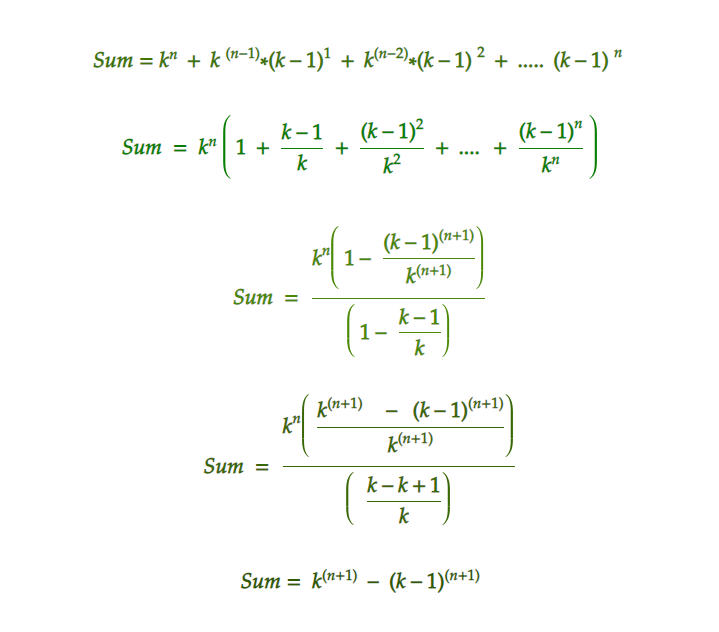



Sum Of The Series Kn K N 1 K 1 1 K N 2 K 1 2 K 1 N Geeksforgeeks




Number Sequences Overhang This Lecture We Will Study Some Simple Number Sequences And Their Properties The Topics Include Representation Of A Sequence Ppt Download
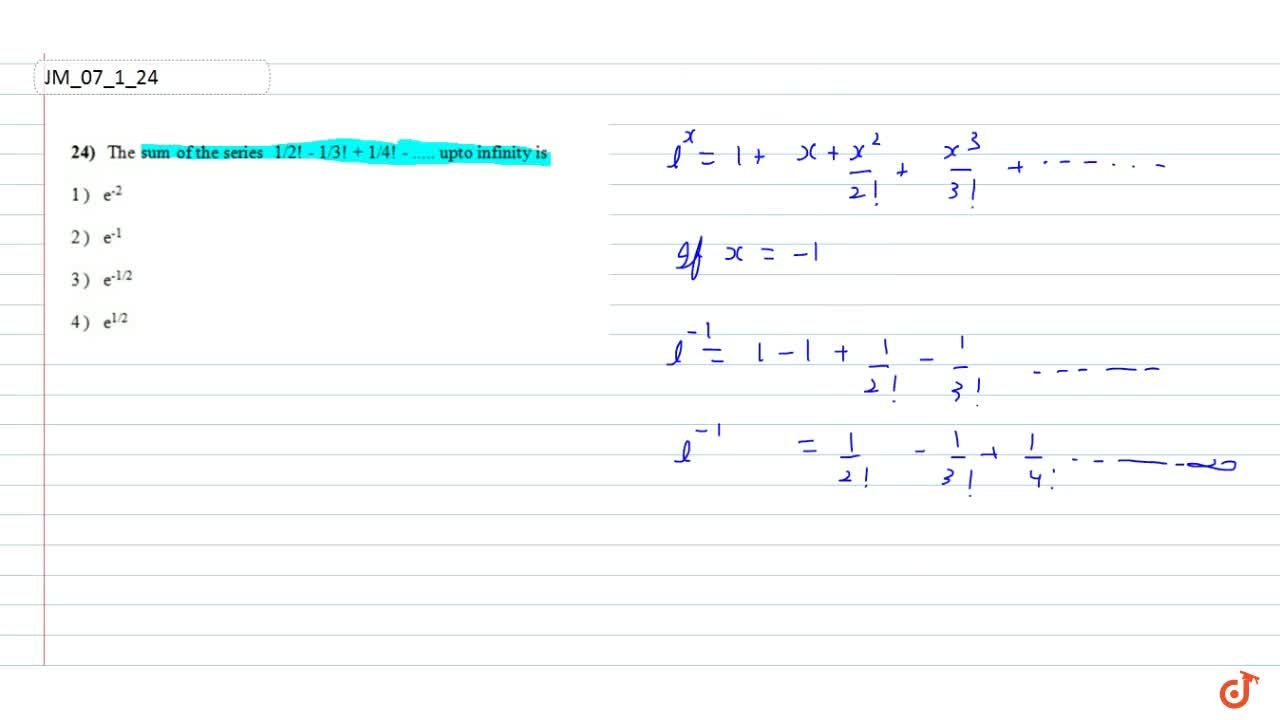



The Sum Of The Series 1 2 1 3 1 4 Upto Infinity Is 1 E 2 2 E 1 3 E 1 2 4 E 1 2




The Sum To Infinity Of The Series 1 2 3 6 3 2 10 3 3 14 3 4 Is 1 2 Youtube
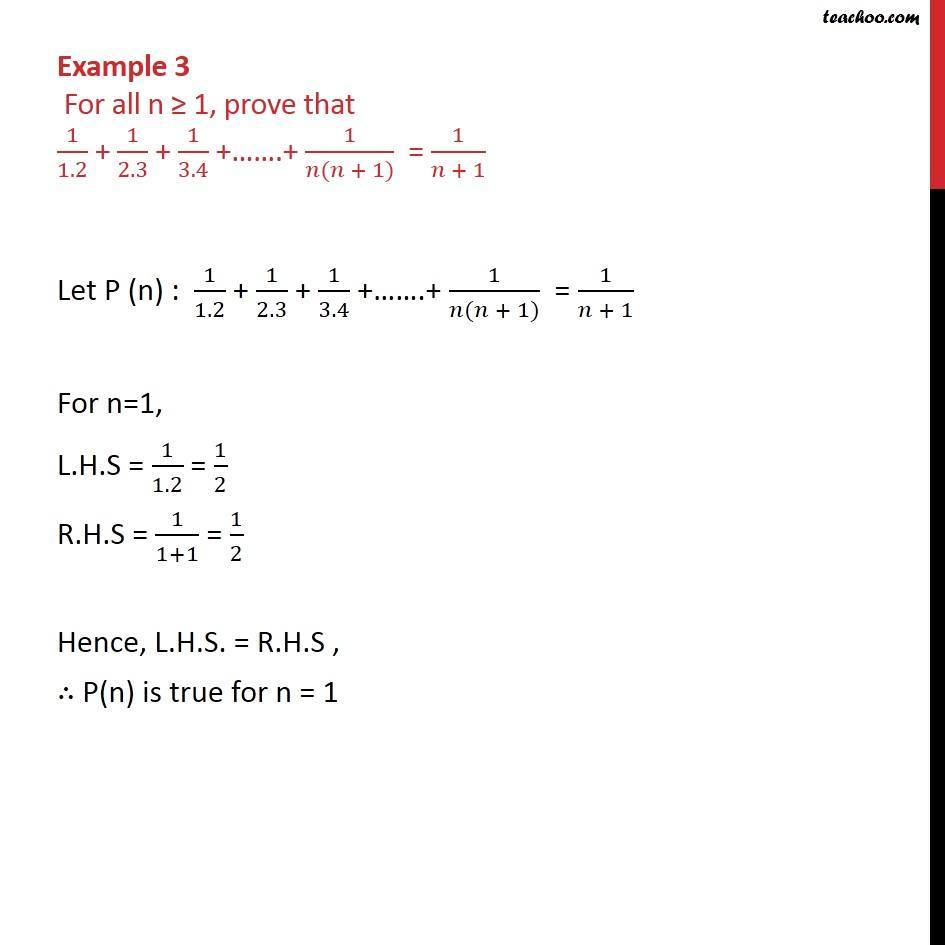



Example 3 Prove 1 1 2 1 2 3 1 3 4 1 N N 1 1 N 1
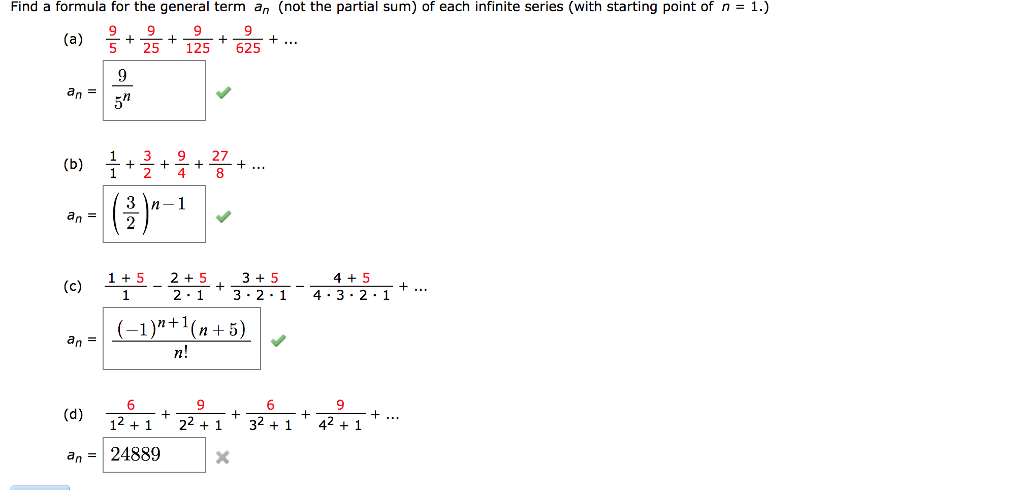



Solved Find A Formula For The General Term An Not The Chegg Com



Prove That The Sum From 1 To Of 2n 3n 6n 3 2 Stumbling Robot



What Is The Sum Of The Sequence 1 1 2 1 2 3 1 3 4 To N Terms Of The Sequence Quora




Find The Sum Upto N Terms Of The Series 3 7 13 21 31 N Terms
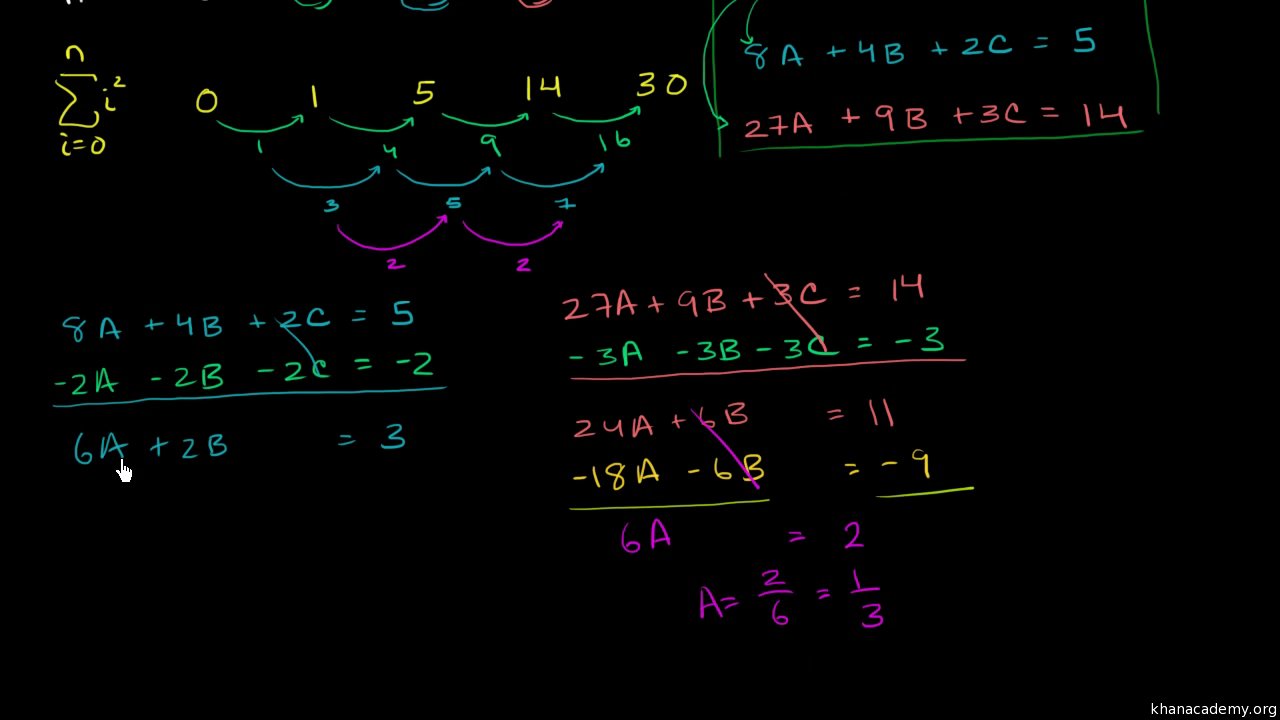



Sum Of N Squares Part 2 Video Khan Academy
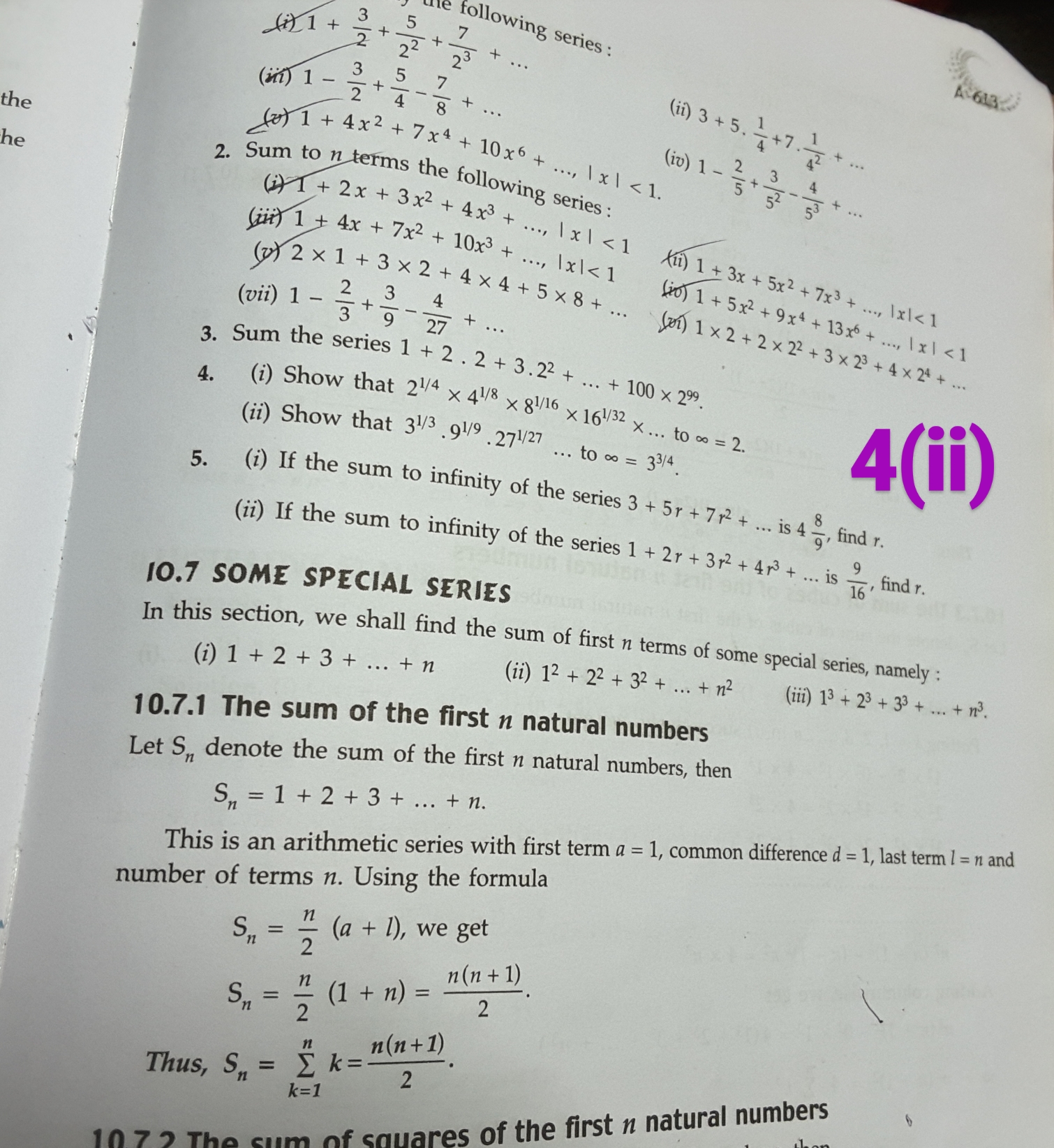



Show That 3 1 3 Xx9 1 9 Xx27 1 27 To Infinity 3 3 4 How Socratic




Sum Of 1 N 3 Believe In Integrals Youtube




Showimage Php Formula F3e8b69aa80bc9f5716d8724 Png D 0




The Sum Of Infinity Of The Series 1 4 5 7 5 2 10 5 3 Is




Partial Sums Formula For Nth Term From Partial Sum Video Khan Academy




Let H N 1 1 2 1 3 1 N Then The Sum To N Terms Of The Series 1 2 1 3 1 2 2 2 1 3 2 3 1 2 2 2 3 2 1 3 2 3 3 3 Is




C Program To Find Sum Of Series 1 2 3 N



Sum Of Infinite Geometric Series Formula Sequence Examples Video Lesson Transcript Study Com
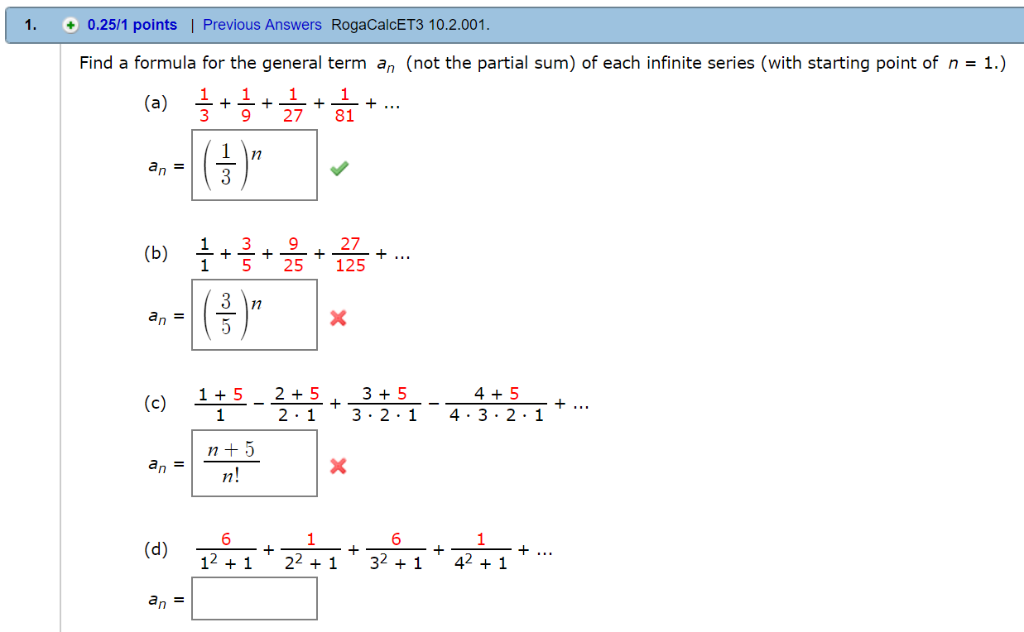



Solved 1 0 25 1 Points Previous Answers Rogacalcet3 Chegg Com




Sum To N Terms 1 N 2 N 1 3 N 2 Youtube
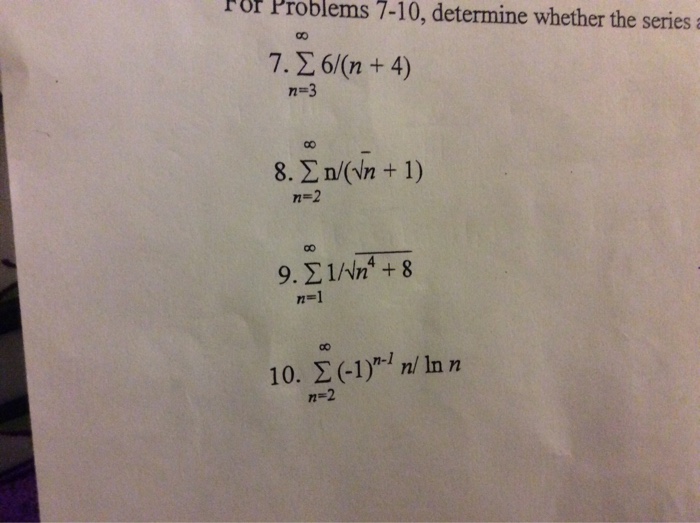



Solved 1 Determine Whether The Series Converge Or Diverge Chegg Com



What Is The Value Of 1 3 2 5 3 7 To Infinity In Terms Of E Quora




Proof Of 1 2 2 2 Cdots N 2 N 3 3 N 2 2 N 6 Mathematics Stack Exchange
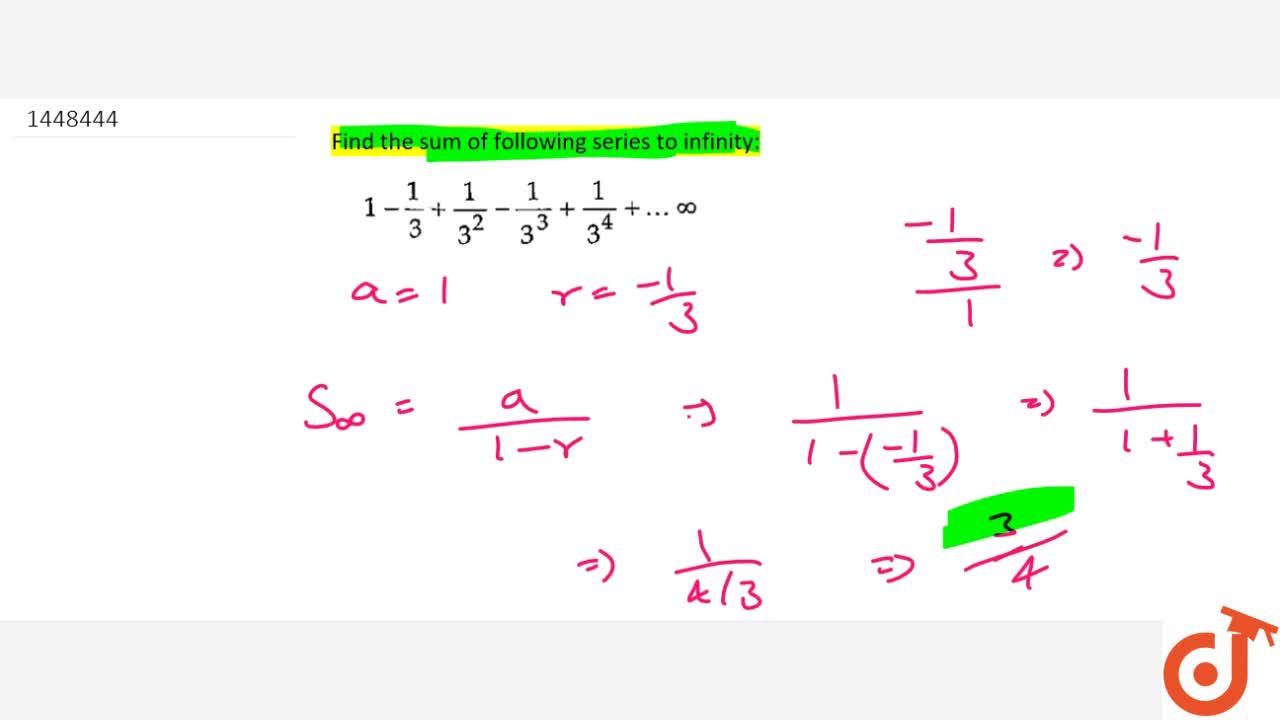



Find The Sum Of The Following Series To Infinity 1 1 3 1 3 2 1 3 3 1 3 4 Oo
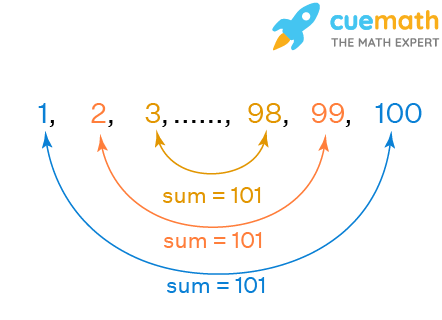



Sum Of N Terms Of An Ap Formula Examples Sum Of Ap Formula




Find The Sum To N Terms Of The Series 1 2 3 2 5 2 To N Terms



The Sum To Infinity Of The Series 1 2 3 6 3 2 10 3 3 14 3 4 Is Sarthaks Econnect Largest Online Education Community



How Much Is 1 1 2 1 3 1 4 Infinite Terms Quora



What Is The Sum Of The Series Math 1 Frac 1 2 Frac 1 3 Frac 1 4 Frac 1 5 Math Up To Infinity How Can It Be Calculated Quora
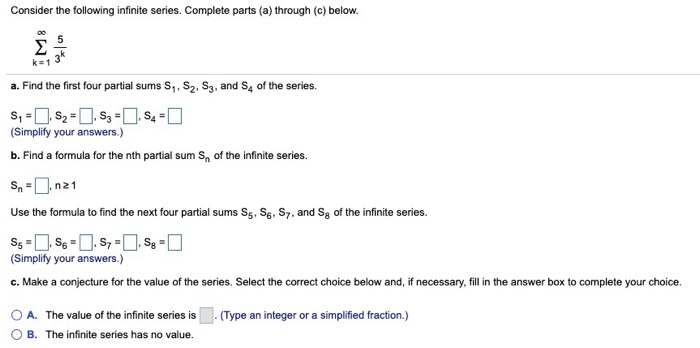



Solved Consider The Following Infinite Series Complete Chegg Com
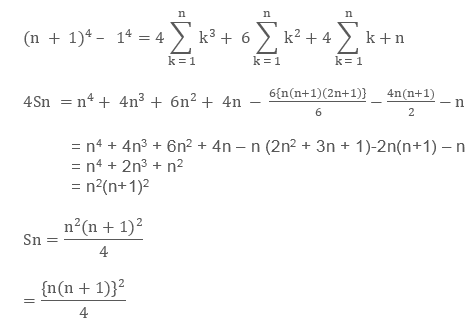



Sum To N Terms Of Special Series Study Material For Iit Jee Askiitians




Infinite Series Partial Sums Explanation Examples Types Video Lesson Transcript Study Com




In The End It All Adds Up To 1 12 The New York Times




Solved Find Sum Of The Following Ap 1 1 N 1 2 N 1 3 N Upto Nth Terms Brainly In




1 1 3 1 6 1 10 1 15 Most Difficult Series Made Simple Iit Jee Ib Math 2 Youtube
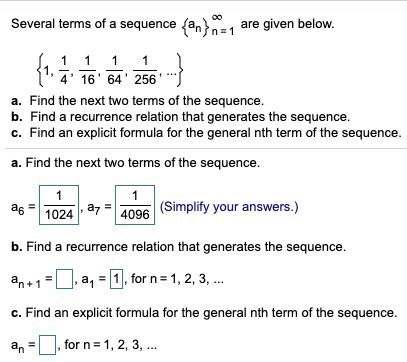



Solved Consider The Following Infinite Series Complete Chegg Com



2




1 3 2 3 3 3 N 3 And Its Geometry Youtube



What Is The Value Of 1 3 1 5 1 7 1 49 Quora
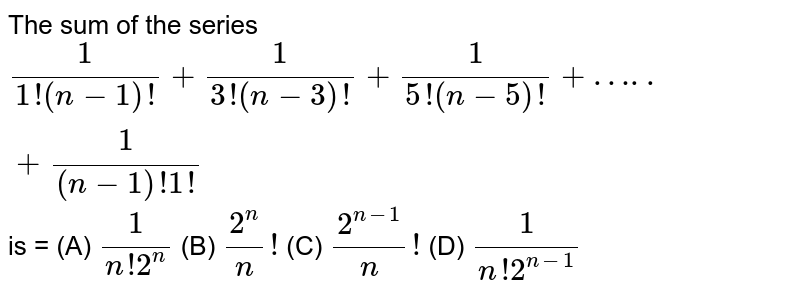



When Simplified The Sum 1 2 1 6 1 12 1 1 30 Ddot 1 N N 1 Is Equal To 1 N B 1 N 1 C N N 1 D 2 N 1 N




The Sum Of N Terms Of The Following Series 1 3 3 3 5 3 7 3 Is
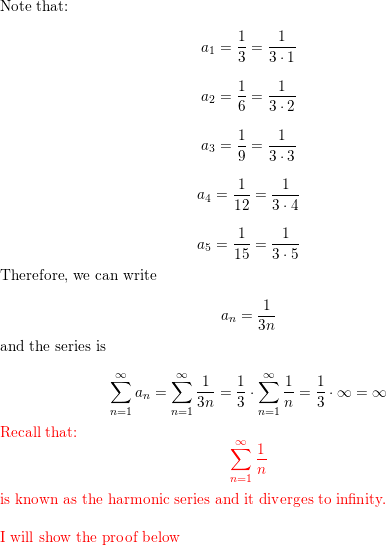



Determine Whether The Series Is Convergent Or Divergent If Quizlet




The Ramanujan Summation 1 2 3 1 12 By Mark Dodds Cantor S Paradise




C Program To Find Sum Of Series 1 1 2 2 3 3 N N Youtube




Find Sum Of Series 1 1 3 5 1 3 5 7 1 5 7 9
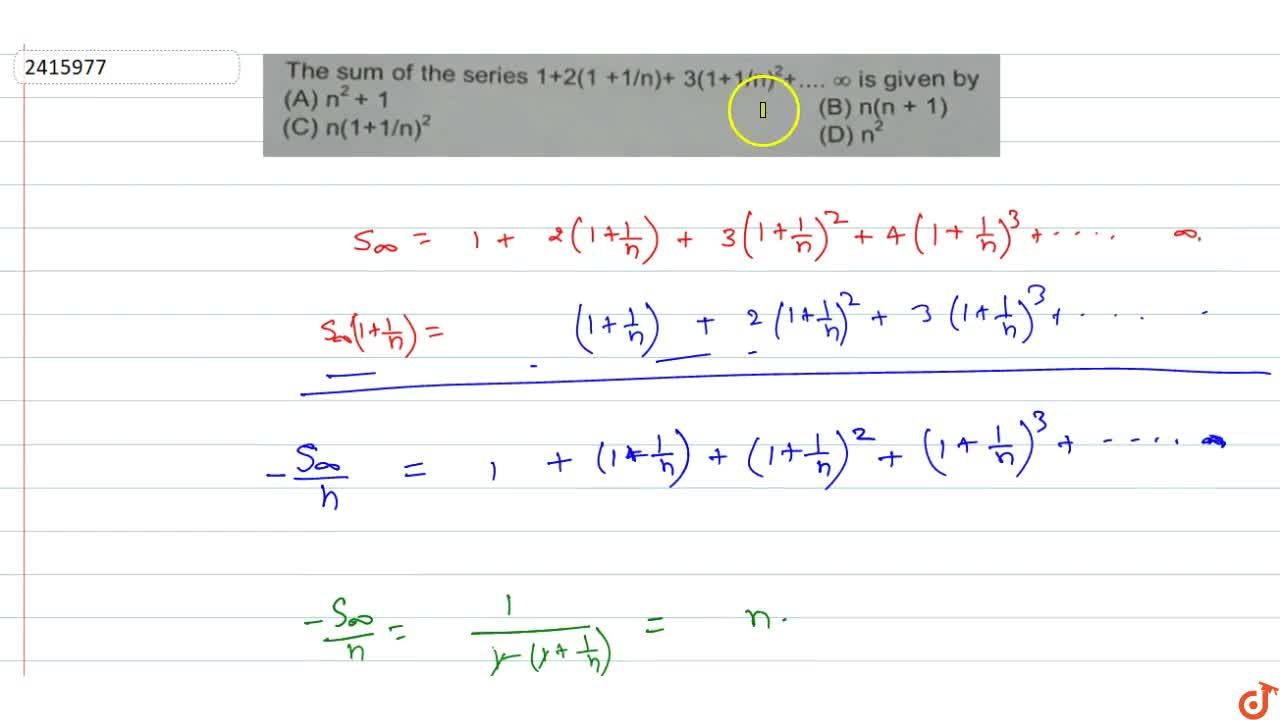



The Sum Of The Series 1 2 1 1 N 3 1 1 N 2 Oo Is Given By




Breaking A Fraction Into A Unique Sum Of Two Distinct Unit Fractions By Keith Mcnulty Cantor S Paradise



2




Integral Test For Infinite Series Sum 1 3 N Youtube



What Is The Sum Of The Series Math 1 Frac 1 2 Frac 1 3 Frac 1 4 Frac 1 5 Math Up To Infinity How Can It Be Calculated Quora
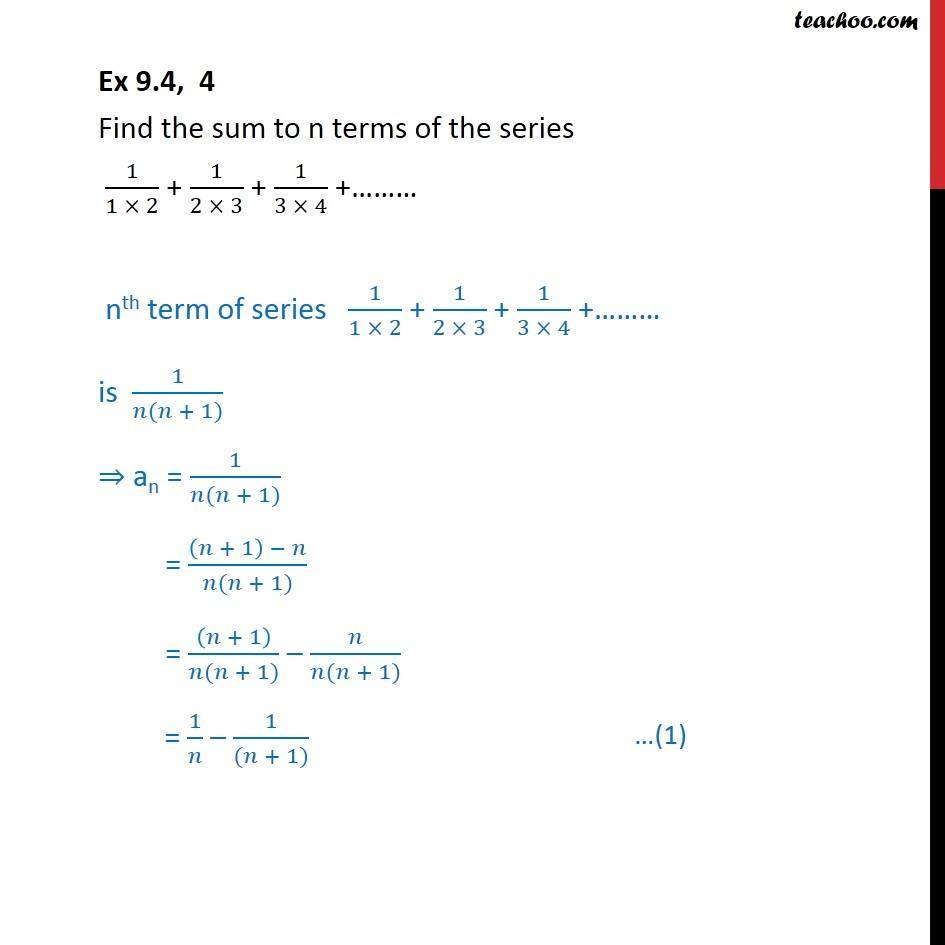



Ex 9 4 4 Find Sum Of Series 1 1 X 2 1 2 X 3 1 3 X 4
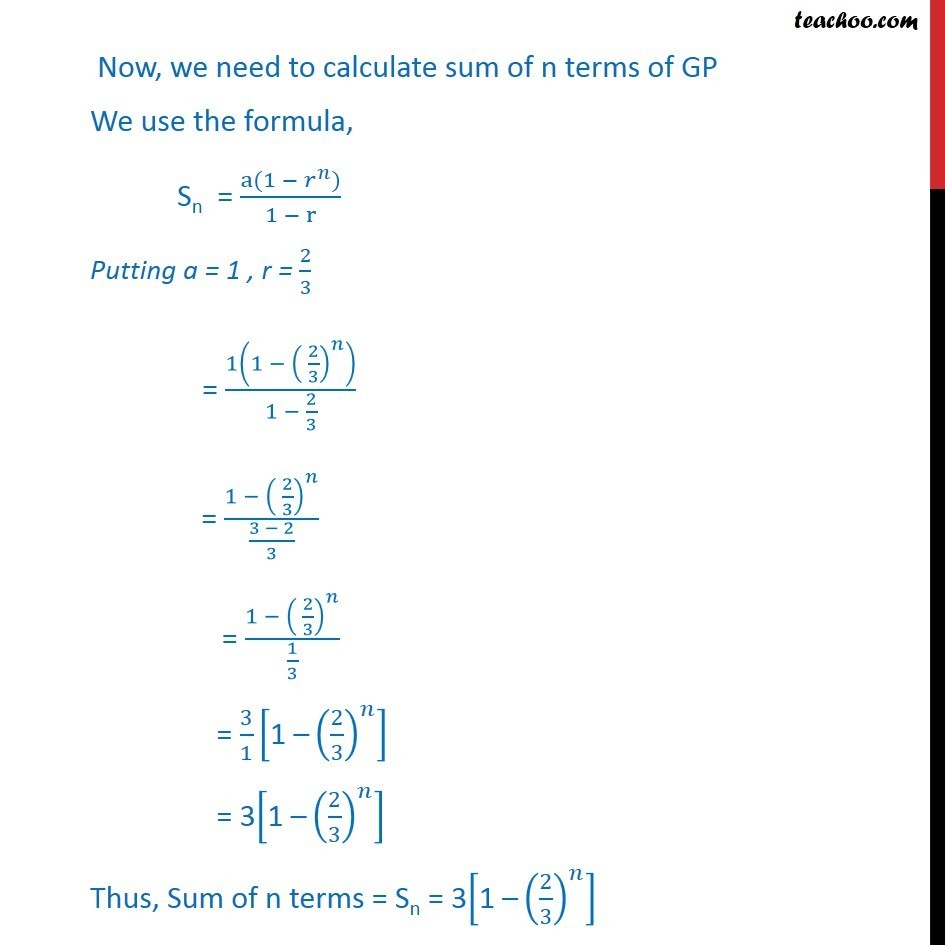



Example 12 Find Sum Of First N Terms And Of First 5 Terms
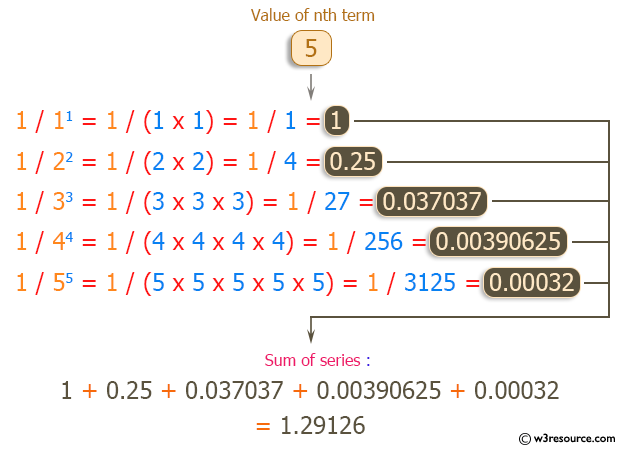



C Find The Sum Of The Series 1 1 2 2 1 3 3 1 N N



Q Tbn And9gcs8winavatsvxrevxhj0wlbqosmtf35okdf5bmqvvbihb71t09qc Hz Usqp Cau
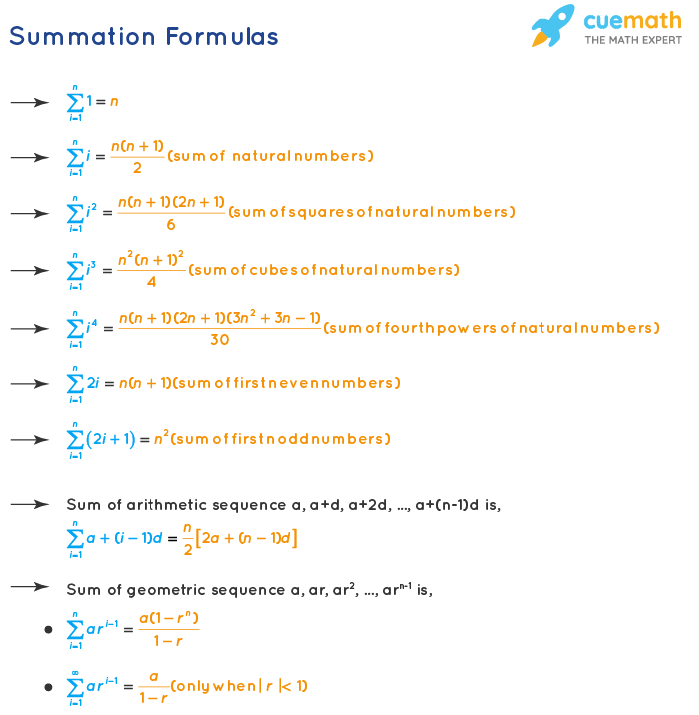



Summation Formulas What Are Summation Formulas Examples




Worked Examples Summation Notation Video Khan Academy
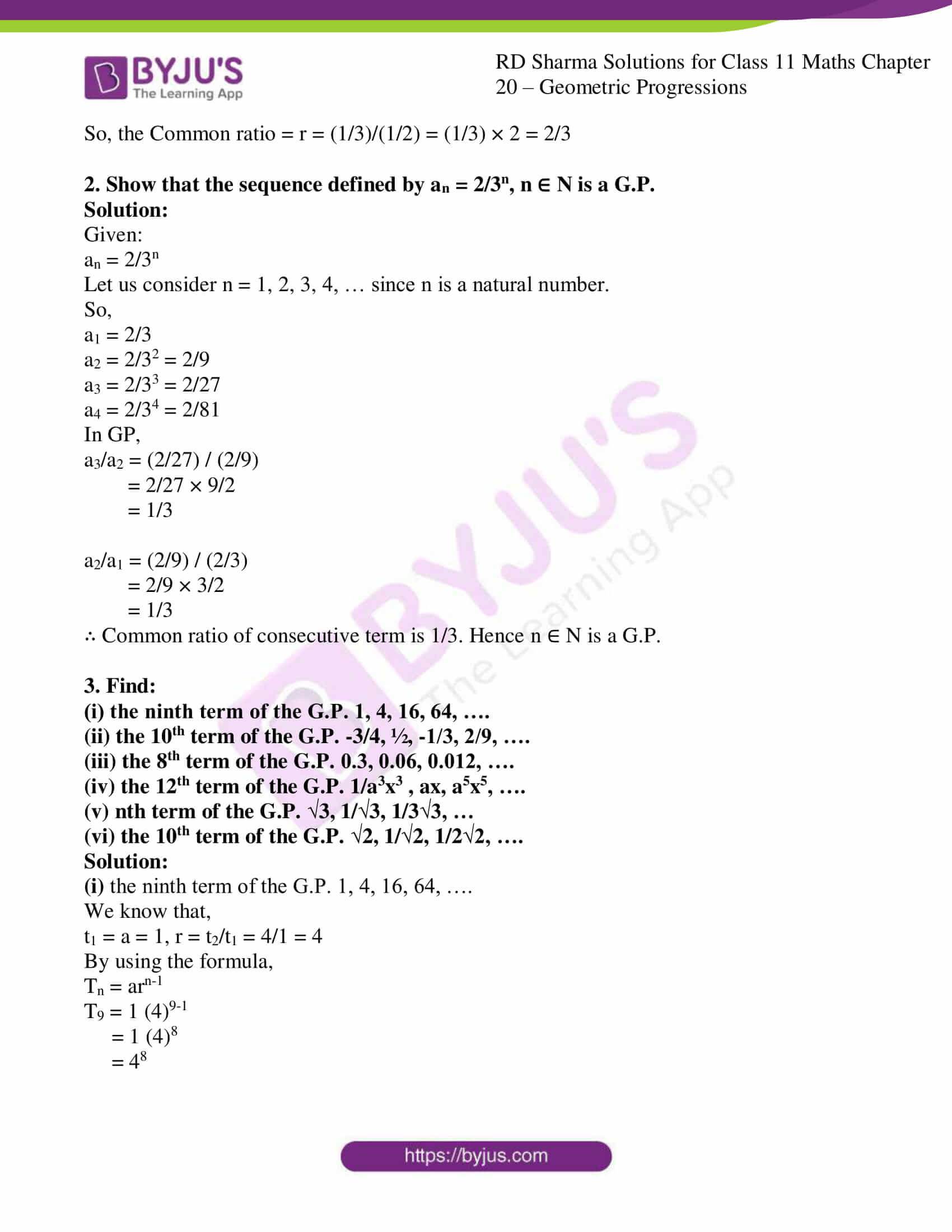



Rd Sharma Solutions For Class 11 Maths Updated 22 23 Chapter Geometric Progressions Download Free Pdf Available




Pi Formulas From Wolfram Mathworld



What Is The Sum Of The Series Math 1 Frac 1 2 Frac 1 3 Frac 1 4 Frac 1 5 Math Up To Infinity How Can It Be Calculated Quora
コメント
コメントを投稿